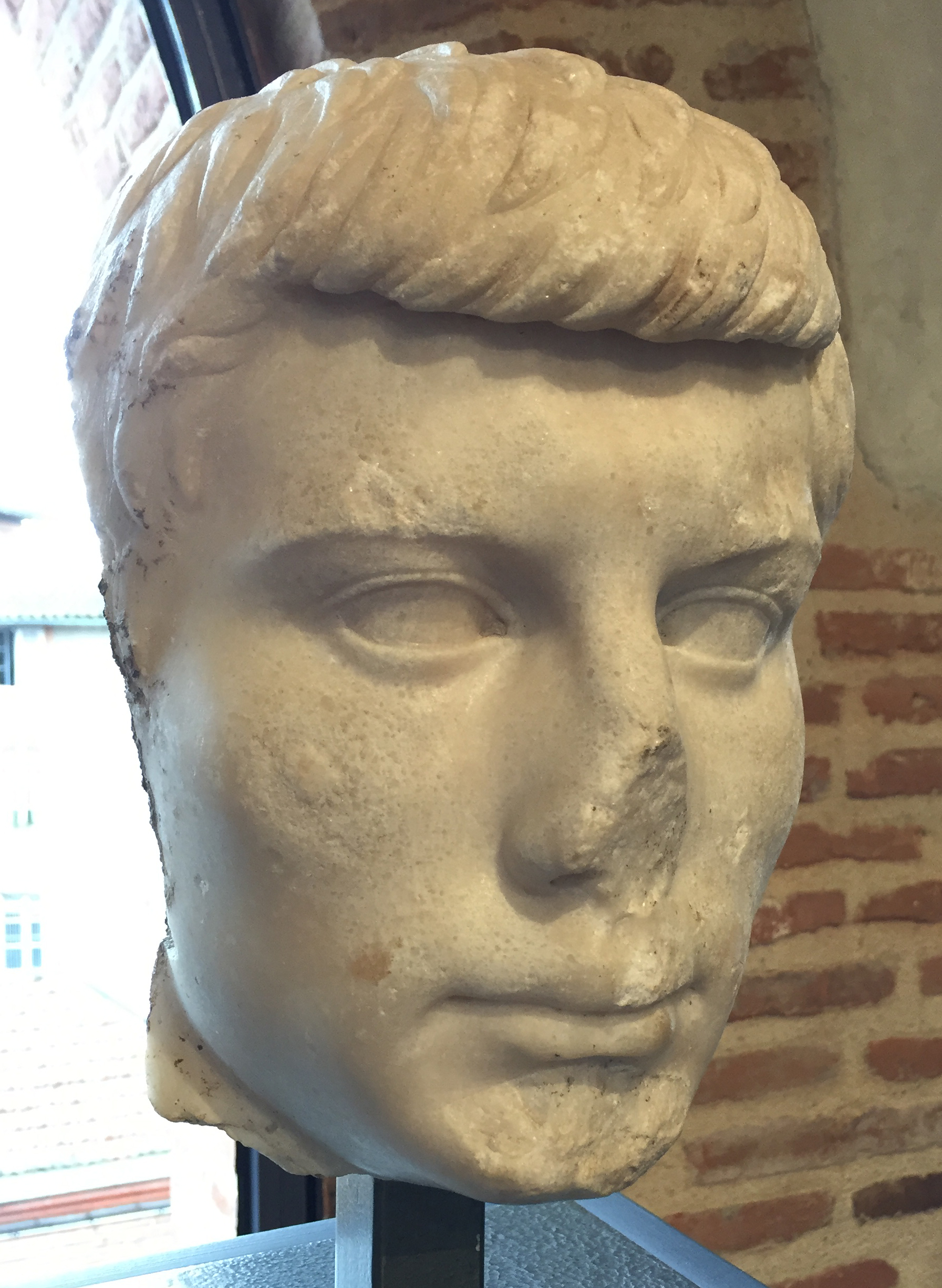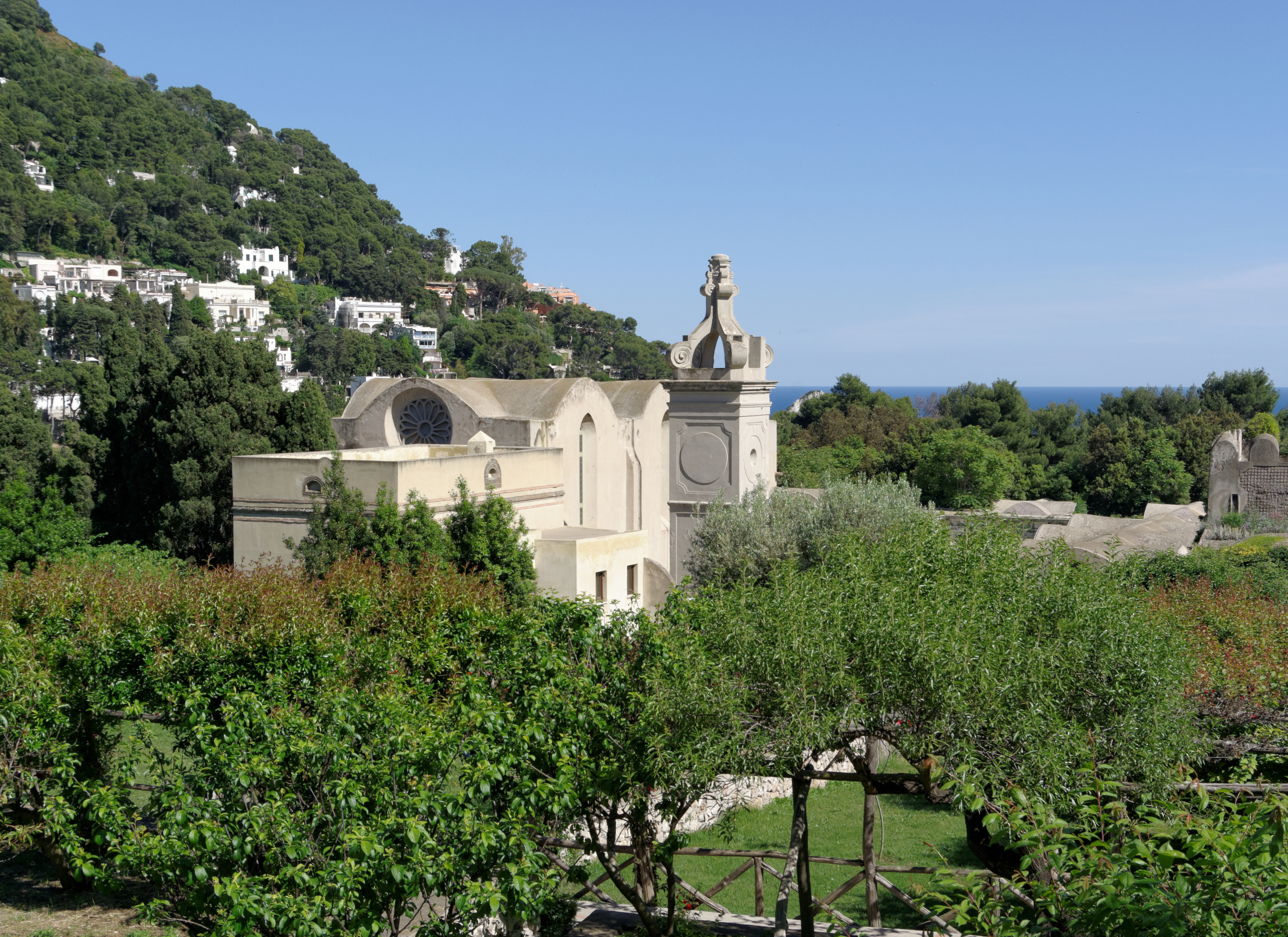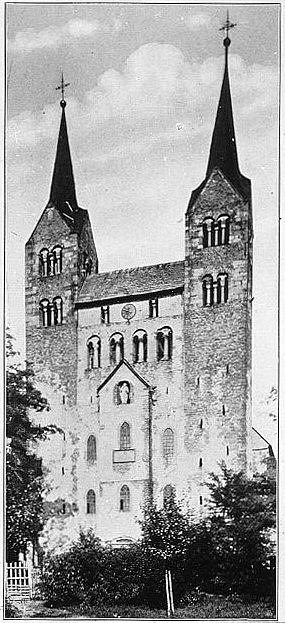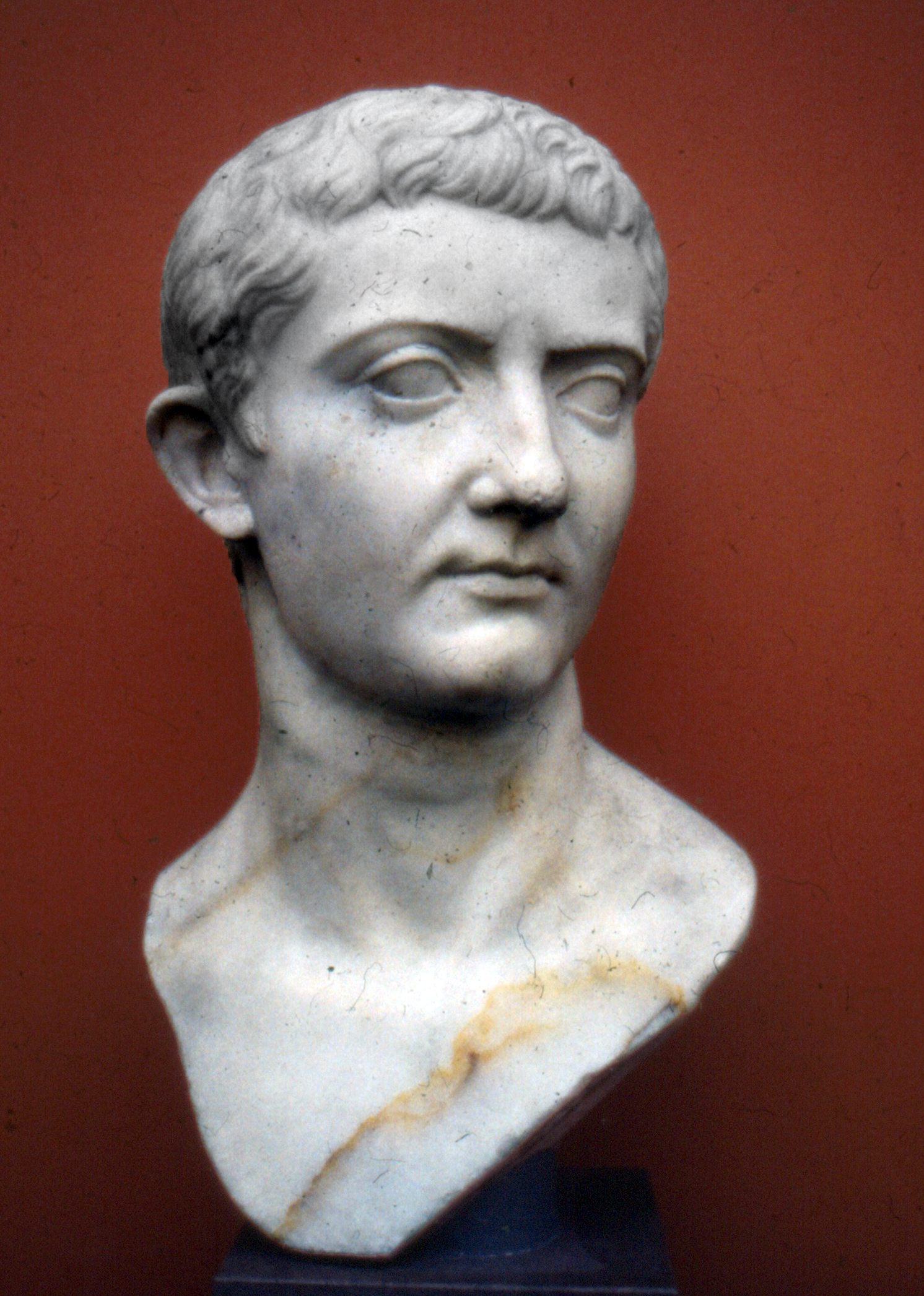|
Tiberius Gemellus
Tiberius Julius Caesar Nero, known as Tiberius Gemellus (10 October AD 19 – 37/38), was the son of Drusus and Livilla, the grandson of the Emperor Tiberius, and the cousin of the Emperor Caligula. ''Gemellus'' is a nickname meaning "the twin". His twin brother, Germanicus Gemellus, died as a young child in AD 23. His father and older cousins died, and are suspected by contemporary sources as having been systematically eliminated by the powerful praetorian prefect Sejanus. Their removal allowed Gemellus and Caligula to be named joint-heirs by Tiberius in 35, a decision that ultimately resulted in Caligula assuming power and having Gemellus killed (or forced to kill himself) in late 37 or early 38. Background Gemellus was born the son of Drusus Julius Caesar and Livilla on 10 October AD 19, the same day his uncle Germanicus died in Syria. His paternal grandparents were emperor Tiberius and his wife, Vipsania Agrippina, with his maternal grandparents being general Nero Claudius ... [...More Info...] [...Related Items...] OR: [Wikipedia] [Google] [Baidu] |
Musée Saint-Raymond
(in English, ''Saint-Raymond museum'') is the archeological museum of Toulouse, France, opened in 1892. The site originally was a necropolis, and in later constructions was a hospital for the poor and pilgrims, prison, student residence, stables, barracks and presbytery, eventually becoming a museum in 1891. It is housed in the former Saint-Raymond university college dating from the sixteenth century that borders Basilica of Saint-Sernin. The building has been renovated and reconstructed several times. It preserves and exhibits archaeological collections from protohistory to the early Middle Ages, mainly from the Celtic, Roman and early Christian periods, much from the Toulouse region. History of the building Originally a Christian necropolis dating from the 4th century was located here and stretched on either side of the Roman road close to the Basilica of Saint-Sernin. Between 1075 and 1080, on the site of the present building was a hospital for the poor and for pilgrims ... [...More Info...] [...Related Items...] OR: [Wikipedia] [Google] [Baidu] |
Julia (daughter Of Drusus The Younger)
Julia Livia (AD 7–43) was the daughter of Drusus Julius Caesar and Livilla, and granddaughter of the Roman Emperor Tiberius. She was also a first cousin of the emperor Caligula, and niece of the emperor Claudius. Biography Early life Julia was born in the later years of the reign of her adoptive great-grandfather, Emperor Augustus, and was the daughter of Drusus Julius Caesar (a grandson of Augustus wife' Livia Drusilla through her son Tiberius) and Livilla (a granddaughter of Livia Drusilla through her son Nero Claudius Drusus, and a granddaughter of Mark Antony through his daughter Antonia Minor). At the time of Augustus' death in AD 14, Julia, who was in early childhood, fell ill. Before he died, the aged emperor had asked his wife Livia whether Julia had recovered. Marriages Upon the death of Augustus, Julia's paternal grandfather, Tiberius, succeeded him as Rome's second Emperor. It was during her grandfather's rule, when she was around the age of 16, that Julia marr ... [...More Info...] [...Related Items...] OR: [Wikipedia] [Google] [Baidu] |
Ponza
Ponza (Italian: ''isola di Ponza'' ) is the largest island of the Italy, Italian Pontine Islands archipelago, located south of Cape Circeo in the Tyrrhenian Sea. It is also the name of the commune of the island, a part of the province of Latina in the Lazio region. History The island was inhabited from neolithic through Ancient Rome, Roman times. According to local legends, Ponza was named after Pontius Pilate, Roman governor of Judea who tried Jesus of Nazareth for sedition against Roman rule. Pontius Pilate's family owned a grotto on Ponza, which is still named after him. The Pontius Pilate legend of Ponza's name has recently come into dispute amongst historians, because the name "Pontia" appears in Strabo's ''Geography''. This pre-dates the birth of Pilate. It is not known if this is the same name as Ponza or a similar name. Also, ''Pontia'' means "Land of Bridges" in Latin, a name which could have been applied for Ponza's many naturally occurring arches and bridge-like lan ... [...More Info...] [...Related Items...] OR: [Wikipedia] [Google] [Baidu] |
Capri
Capri ( , ; ) is an island located in the Tyrrhenian Sea off the Sorrento Peninsula, on the south side of the Gulf of Naples in the Campania region of Italy. A popular resort destination since the time of the Roman Republic, its natural beauty, historic sites, and upscale tourism have made it famous worldwide. The island is characterized by its rugged limestone landscape, sea stacks (Faraglioni), coastal grottoes including the renowned Blue Grotto (Capri), Blue Grotto, and high cliffs overlooking the sea. Notable features include the harbours of Marina Grande, Capri, Marina Grande and Marina Piccola, the panoramic Belvedere of Tragara, the ruins of Roman imperial villas such as Villa Jovis, and the towns of Capri (town), Capri and Anacapri, the latter situated higher up the slopes of Monte Solaro, the island's highest point. Administratively, Capri is part of the Metropolitan City of Naples within the Campania region. The island is divided into two municipalities (''comuni''): ... [...More Info...] [...Related Items...] OR: [Wikipedia] [Google] [Baidu] |
Drusus Caesar
Drusus Caesar ( AD 8 – 33) was the grandson by adoption and heir of the Roman emperor Tiberius, alongside his brother Nero. Born into the prominent Julio-Claudian dynasty, Drusus was the son of Tiberius' general and heir, Germanicus. Sejanus, the prefect of the Praetorian Guard, had become powerful in Rome and is believed by ancient writers such as Suetonius and Tacitus to have been responsible for the downfall of Drusus the Younger. As Sejanus' power grew, other members of the imperial family began to fall as well. In AD 29, Tiberius wrote a letter to the Senate attacking Nero and his mother, and the Senate had them both exiled. Two years later, Nero died in exile on the island of Ponza. Drusus was later imprisoned following similar charges as his brother, and remained in prison from AD 30 until his death three years later. Their deaths allowed for the ascension of their third brother, Gaius Caligula, following the death of Tiberius in AD 37. Background and family Drusus was ... [...More Info...] [...Related Items...] OR: [Wikipedia] [Google] [Baidu] |
Nero Julius Caesar
Nero Julius Caesar (c. AD 6–31) was the adopted grandson and heir of the Roman emperor Tiberius, alongside his brother Drusus. Born into the prominent Julio-Claudian dynasty, Nero was the son of Tiberius' general and heir, Germanicus. After the deaths of his father and of Tiberius' son, Drusus the Younger, Nero and his brother Drusus were adopted together by Tiberius in September AD 23. As a result of being heirs of the emperor, he and his brother enjoyed accelerated political careers. Sejanus, prefect of the Praetorian Guard, had become powerful in Rome and is believed by ancient writers such as Suetonius and Tacitus to have been responsible for the downfall of Drusus the Younger. As the power of Sejanus grew, other members of the imperial family began to fall as well. In AD 29, Tiberius wrote a letter to the Senate attacking Nero and his mother, and the Senate had them both exiled. Two years later, he died in exile on the island of Ponza. His brother Drusus also died in ex ... [...More Info...] [...Related Items...] OR: [Wikipedia] [Google] [Baidu] |
Cassius Dio
Lucius Cassius Dio (), also known as Dio Cassius ( ), was a Roman historian and senator of maternal Greek origin. He published 80 volumes of the history of ancient Rome, beginning with the arrival of Aeneas in Italy. The volumes documented the subsequent founding of Rome (753 BC), the formation of the Republic (509 BC), and the creation of the Empire (27 BC) up until 229 AD, during the reign of Severus Alexander. Written in Koine Greek over 22 years, Dio's work covers approximately 1,000 years of history. Many of his books have survived intact, alongside summaries edited by later authors such as Xiphilinus, a Byzantine monk of the 11th century, and Zonaras, a Byzantine chronicler of the 12th century. Biography Lucius Cassius Dio was the son of Cassius Apronianus, a Roman senator and member of the Cassia gens, who was born and raised at Nicaea in Bithynia. Byzantine tradition maintains that Dio's mother was the daughter or sister of the Greek orator and philosopher, ... [...More Info...] [...Related Items...] OR: [Wikipedia] [Google] [Baidu] |
The Annals (Tacitus)/Book 4
The ''Annals'' () by Roman historian and senator Tacitus is a history of the Roman Empire from the reign of Tiberius to that of Nero, the years AD 14–68. The ''Annals'' are an important source for modern understanding of the history of the Roman Empire during the 1st century AD. Tacitus' final work, modern historians generally consider it his magnum opus which historian Ronald Mellor says represents the "pinnacle of Roman historical writing". Tacitus' ''Histories'' and ''Annals'' together amounted to 30 books, although some scholars disagree about which work to assign some books to, traditionally 14 are assigned to ''Histories'' and 16 to ''Annals''. Of the 30 books referred to by Jerome about half have survived. Modern scholars believe that as a Roman senator, Tacitus had access to '' Acta Senatus''—the Roman senate's records—which provided a solid basis for his work. Although Tacitus refers to part of his work as "my annals", the title of the work ''Annals'' used tod ... [...More Info...] [...Related Items...] OR: [Wikipedia] [Google] [Baidu] |
Tacitus
Publius Cornelius Tacitus, known simply as Tacitus ( , ; – ), was a Roman historian and politician. Tacitus is widely regarded as one of the greatest Roman historians by modern scholars. Tacitus’ two major historical works, ''Annals'' (Latin: ) and the ''Histories'' (Latin: ), originally formed a continuous narrative of the Roman Empire from the death of Augustus (14 AD) to the end of Domitian’s reign (96 AD). The surviving portions of the Annals focus on the reigns of Tiberius, Claudius, Nero, and those who reigned in the Year of the Four Emperors (69 AD). Tacitus's other writings discuss oratory (in dialogue format, see ), Germania (in ''De origine et situ Germanorum''), and the life of his father-in-law, Agricola (the general responsible for much of the Roman conquest of Britain), mainly focusing on his campaign in Britannia ('' De vita et moribus Iulii Agricolae''). Tacitus's ''Histories'' offers insights into Roman attitudes towards Jews, ... [...More Info...] [...Related Items...] OR: [Wikipedia] [Google] [Baidu] |
Lucius Aelius Sejanus
Lucius Aelius Sejanus ( – 18 October AD 31), commonly known as Sejanus (), was a Roman Empire, Roman soldier and confidant of the Roman Emperor Tiberius. Of the Equites class by birth, Sejanus rose to power as Praetorian prefect, prefect of the Praetorian Guard, the imperial bodyguard, of which he was commander from AD 14 until his execution for treason in AD 31. While the Praetorian Guard was formally established under Emperor Augustus, Sejanus introduced a number of reforms which saw the unit evolve beyond a mere bodyguard into a powerful and influential branch of the government involved in public security, civil administration and ultimately political intercession; these changes had a lasting impact on the course of the Principate. During the 20s, Sejanus gradually accumulated power by consolidating his influence over Tiberius and eliminating potential political opponents, including the emperor's son Drusus Julius Caesar. When Tiberius withdrew to Capri in AD 26, Sejanus wa ... [...More Info...] [...Related Items...] OR: [Wikipedia] [Google] [Baidu] |
Tribunician Power
Tribune of the plebs, tribune of the people or plebeian tribune () was the first office of the Roman state that was open to the plebeians, and was, throughout the history of the Republic, the most important check on the power of the Roman Senate and magistrates. These tribunes had the power to convene and preside over the '' Concilium Plebis'' (people's assembly); to summon the senate; to propose legislation; and to intervene on behalf of plebeians in legal matters; but the most significant power was to veto the actions of the consuls and other magistrates, thus protecting the interests of the plebeians as a class. The tribunes of the plebs were typically found seated on special benches set up for them in the Roman Forum. The tribunes were sacrosanct, meaning that any assault on their person was punishable by death. In imperial times, the powers of the tribunate were granted to the emperor as a matter of course, and the office itself lost its independence and most of its func ... [...More Info...] [...Related Items...] OR: [Wikipedia] [Google] [Baidu] |
MSR Tiberius Gemellus Ra122 2
MSR may refer to: Science and technology * Macrophage scavenger receptor, a receptor found in macrophages * Magnetic stripe reader, a device used to read magnetic stripe cards such as credit cards * M–sigma relation, in astrophysics * Mars sample return mission, a spaceflight mission to return rock and dust samples collected on Mars * Mirror self-recognition, in animals through the mirror test * Molten salt reactor, an advanced nuclear reactor design Computing * Machine state register, a register used in PowerPC architectures * Model-specific register, a feature in x86 processors * Microsoft Reserved Partition, a space-management partition on a computer storage device * Mining software repositories, a field that analyzes the rich data available in software repositories Entertainment * MSR Studios, a New York recording studio * The Most Serene Republic, a Canadian indie rock band * ''Metropolis Street Racer'', a Dreamcast racing game * Mid-season replacement, a televis ... [...More Info...] [...Related Items...] OR: [Wikipedia] [Google] [Baidu] |







